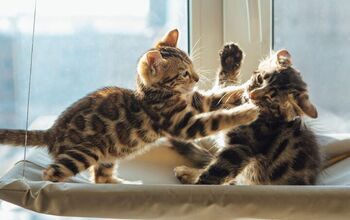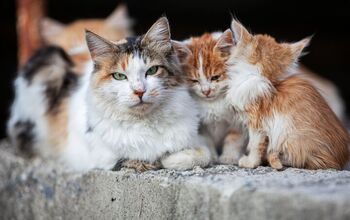Cat-astrophe: Common Bad Behavior Issues And How To Fix Them

Even though every feline is unique, complete with individual personality and quirks, there are certain negative behaviors that some cats will exhibit that need to be addressed. When faced with a challenging kitty who is misbehaving, you need to know how to approach the situation and address the problem in a way that will ensure your cat will understand what you want. This will lead to the most successful training and resolve the behavior problems at the same time.
Below are some of the most common cat behavior issues that pet owners face, along with tips on how to resolve these issues before they become even more destructive.
Everything Within Paw’s Reach is a Scratching Post
The last thing that you want is to bring a cat into your home who will destroy all of your furniture, curtains, flooring, and more. But cats have a natural instinct to scratch in order to keep their claws healthy, to mark their territory, to play, and to release pent-up energy. Rather than inhibiting this behavior or, worse yet, declawing your cat, you can train your pet to scratch only in areas that are appropriate.
Related: Declawing Cats: A Cruel and Unnecessary Procedure
Purchase a few different scratching posts and place them in areas of your home where your cat typically scratches. Add some catnip to the posts in order to attract your feline to the area and entice him to go to town scratching the post rather than your furniture. He will immediately recognize the fabulous texture of the scratching post and prefer it over the texture of your furniture.
Get a few different styles of scratching posts, from those that are upright to those that lay horizontally. Some cats prefer to stretch up and scratch a vertical post while standing on their hind legs, but others prefer to stay firmly planted on the ground and scratch a vertical or slightly slanted post. Experiment and observe your kitty to figure out which would be the best option. And make sure you keep your cat’s claws trimmed to prevent damage to your furniture in the meantime and to keep yourself from getting scratched up as well.
A Mean Kitty
Cats should be docile and snuggly creatures rather than aggressive little monsters. Understanding why your cat is behaving aggressively will help you target the problem and resolve it.
Related: What Is The Best Cat Litter For Your Kitty?
First, have your pet examined by a veterinarian because health issues and pain may lead to aggressive and defensive behaviors. If your cat is not yet spayed or neutered, have your vet perform the surgery, as this often resolves behavioral issues, especially in males.
If you have more than one cat in the house and they are aggressive towards one another, make sure they each have plenty of space to call their own, that they have their own litter boxes and food and water bowls, and that they all get plenty of playtime and affection from you.
When all else fails, talk to a feline behaviorist who can get to the root of the problem.
Not Using the Litter Box
Cats who are healthy and properly trained will immediately take to using the litter box. But if a cat is eliminating outside of the box, you should have him examined by a veterinarian in order to rule out any painful and serious health conditions, such as urinary tract infections or diabetes, which could be causing this behavior.
Never get mad at your cat for eliminating outside of his litter box because this will not solve the issue and will only make him afraid of you. He will not understand why he is being punished because cat’s typically don’t respond to punishments (they respond much better to positive reinforcement).
Check that the litter box issues are not actually your own fault by making sure the litter box is clean and that it doesn’t smell. Wash out the box itself regularly and change out the litter consistently. Remember, a cat’s sense of smell is much stronger than yours, so while a box may seem clean to you, it may be disgusting to a cat. Avoid purchasing litter boxes that are too small or that are difficult to keep clean.
If you have more than one cat, get a litter box for each one. This will ensure there will be a clean spot for each cat to go in, and it will resolve any privacy or territorial issues as well.

Lisa Selvaggio is a freelance writer and editor, and our resident cats-pert, with certifications in pet nutrition and pet first aid. She enjoys producing content that helps people understand animals better so they can give their pets a safe and happy home.
More by Lisa Selvaggio





















